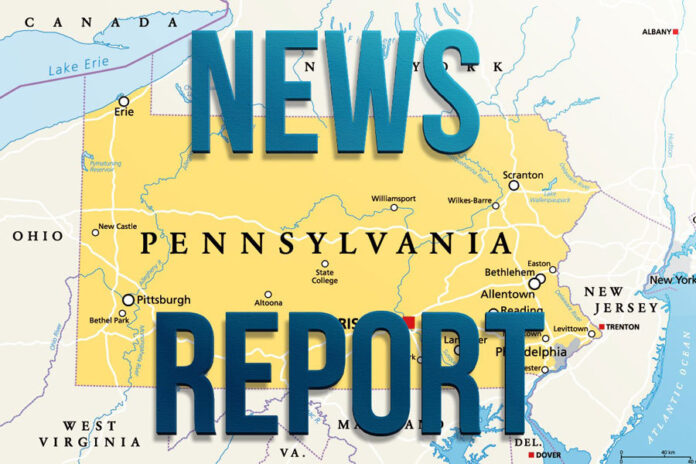Philadelphia Daily News/Inquirer. December 28, 2023
Editorial: Gov. Shapiro should seize the chance to help SEPTA in its time of need
The beleaguered transit agency, which faces a $240 million deficit in 2024, missed out on a chance to win more funding from Harrisburg. Could the governor come to its rescue?
In his first year in office, Gov. Josh Shapiro has cultivated a reputation as a man of action. Few will forget his rapid response to the partial collapse of a section of I-95 in Northeast Philadelphian June, which saw a temporary bridge constructed in just 12 days. It was a stunning display of how effective government can be when it wants to. Commuters and truckers who travel the corridor breathed a sigh of relief.
For Pennsylvania’s public transit users, however, that same sense of urgency and responsibility from state officials has not materialized.
Despite pleas from SEPTA, the commonwealth’s largest public transit agency, the long-delayed state budget deal did not include any increased funding for public transportation.
SEPTA now faces an operating deficit of around $240 million in 2024 and expects to make devastating service cuts, raise fares significantly, and explore more radical options for cost reductions.
While few in Harrisburg strongly opposed more money for public transportation, fewer still strongly supported it. Without explicit advocacy from the governor, SEPTA was left behind over other funding priorities — even though far more people rely on the transit system (about 700,000 riders ) than use the Philadelphia corridor of I-95 (roughly 160,000 drivers ) on a typical day.
SEPTA’s proposed solution to its funding woes was asking legislators to approve an increase in the share of state sales tax revenue devoted to paying for public transportation.
The sales tax itself would not increase, but the Public Transportation Trust Fund — which directs funding to public transit across the state — would receive a greater allocation of the money generated by the sales tax, to 6.4% from 4.4%.
SEPTA’s share, about $190 million, would have helped prevent what are expected to be “draconian service reduction and extraordinary fare increases,” according to SEPTA CEO Leslie S. Richards.
Of course, there is likely no shortage of advisers who will tell Shapiro there is little political upside to supporting transit. After all, the issue was not a major part of his campaign. And for many Pennsylvanians, public transit is simply not part of their daily life. Nor is it for about 45% of Americans, who have no access to public transportation at all.
But despite its consistent underappreciation during state and local budget season, SEPTA is an essential part of the regional economy.
When Philadelphia successfully bids for events like the FIFA World Cup, a papal visit, or a political convention, the transit network is a big part of the picture. While Amazon officials may have ultimately relied on a less-than-objective decision-making process for choosing a home for their new headquarters, Chicago and Philadelphia were strong contenders, largely because of our public transit systems. Even outside the city, access to transit is a key selling point for employers and residents alike.
Shapiro should seize this opportunity to help SEPTA in its time of need. Perhaps the most helpful step the governor could take on the agency’s behalf is to build the trust fund allocation change into his next budget in the spring — and work with the legislature to get the measure passed on time.
SEPTA officials have some leeway before they have to implement and announce cuts. If Shapiro’s next budget includes the funding, the agency might be able to avoid significant service changes and forestall other reductions by raising fares (which haven’t increased in six years ).
Public transportation needs a champion in Harrisburg. Like he did with the I-95 collapse, Shapiro should meet the moment.
___
Pittsburgh Tribune-Review. December 31, 2023
Editorial: Who owns Pennsylvania’s historical records?
Pennsylvania’s history is frequently bigger than the state.
From the Liberty Bell and Independence Hall in Philadelphia to the sweeping battlefields of Gettysburg to the remains of Fort Pitt in Pittsburgh, the Keystone State is a rich cache of evidence of what came before.
But it isn’t all buildings and cemeteries. A great deal of the state’s history is information.
Pennsylvania has been the site of centuries of births, deaths, weddings, adoptions, divorces, property sales, incorporation of businesses and more. Millions of people have called the state home, creating a vast number of records.
For historians and genealogists, that could be considered a treasure.
For the state, it is apparently a burden.
In 2008, the Pennsylvania Historic and Museum Commission entered into an agreement with Ancestry.com to digitize a long list of records — everything from prison data and Civil War information to immigration papers and military files. In total, there were 45 terabytes of information.
For context, 45 terabytes is more than 3 billion pages of information, give or take.
If you are a Pennsylvania resident, you can access the information for free on the commission’s website — a way to facilitate interest in tracing ancestry and building family trees, but only if you have an Ancestry account.
If you aren’t a Pennsylvania resident, you need an active Ancestry subscription. Normal prices for that range from $119 for six months to $259 for six months depending on how much and what kind of access is wanted.
That’s not that unusual. Searching for genealogical records can be tedious, expensive or both. Ancestry.com has that down to an easily navigable science, which is what makes it the big dog in genealogy circles. The company was acquired by investment management company Blackstone Inc., in 2020 for $4.7 billion.
But a Spotlight PA story is looking at questions about who owns the records, thanks to a lawsuit by genealogist Alec Ferretti of nonprofit Reclaim the Records. In 2022, he submitted a request for all records turned over to Ancestry. PHMC denied that, saying it had no responsive records, kicking off an appeal to the Office of Open Records that snowballed to Commonwealth Court, which then kicked it back to Open Records.
The problem isn’t that the state doesn’t have records to give. First, there are billions of pages of records, which is a challenge to turn over. Then there is the idea that, while the state owns the records, as public documents, Ancestry is asserting its rights as owner of the proprietary work involved.
This is an issue that might have been avoided if state agencies didn’t seem to approach public records from a standpoint of gatekeeping. The request process can often seem more like an obstacle course than a simple give and take. The Office of Open Records will say “yes” to a request, and another state agency immediately counters to a higher authority.
Agencies like the commission should proactively work with the Office of Open Records instead, finding the best way to make the most records available to the people efficiently and economically.
And, if they could do that, it would be truly history-making.
END



















